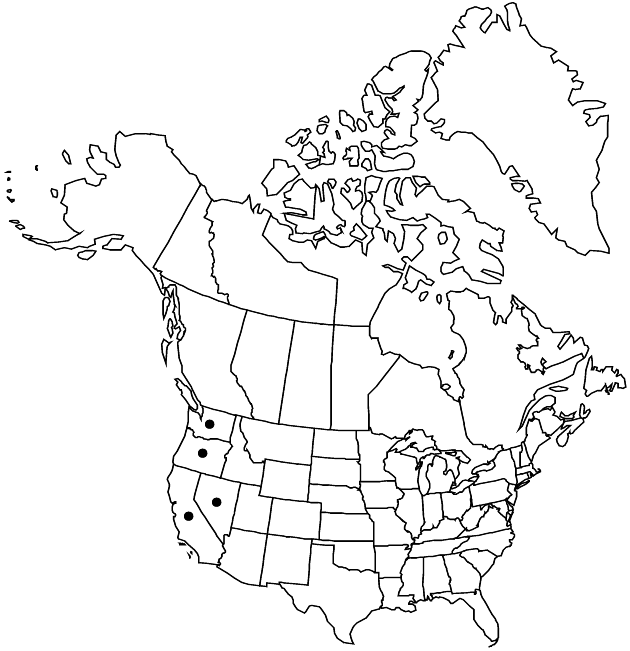Difference between revisions of "Balsamorhiza serrata"
Bot. Gaz. 56: 479. 1913.
FNA>Volume Importer |
FNA>Volume Importer |
(No difference)
| |
Revision as of 18:47, 24 September 2019
Plants 10–20(–30) cm. Basal leaves: blades pale green to gray-green, lanceolate or lance-ovate, 5–15(–20+) × 2–5(–10) cm (earliest sometimes, later seldom, pinnately lobed, mostly toward tips), bases usually cuneate to subtruncate, sometimes cordate, margins usually dentate to serrate, apices acute, faces hirsutulous to scabrous. Heads usually borne singly. Involucres campanulate, 15–25 mm diam. Outer phyllaries lanceolate to lance-triangular, 10–22 mm, shorter than inner, apices acute to attenuate (margins ciliate). Ray laminae (20–)30–40. 2n = 38.
Phenology: Flowering Apr–Jun.
Habitat: Basaltic scablands, sagebrush scrub, openings in forests, meadow borders
Elevation: (1000–)1400–1500 m
Distribution

Calif., Nev., Oreg., Wash.
Discussion
Balsamorhiza serrata hybridizes with B. careyana. Leaves of the hybrids tend to be prostrate rather than erect. Most of the hybrids display the larger size of B. careyana and lack the pubescence of the heads; serrata-like plants never develop more than a single head nor do they have the pubescence of the cypselae.
Selected References
None.